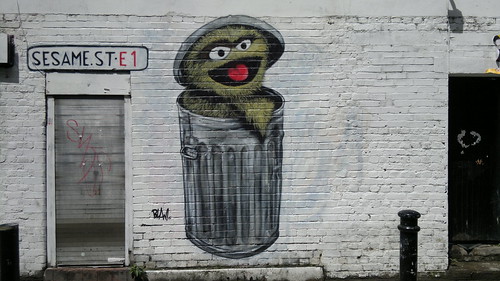Welcome to this week’s Language Blog Roundup, in which we bring you the highlights from our favorite language blogs and the latest in word news and culture.
For Super Bowl XLVII, OxfordWords Blog tackled some football language. In honor of the end of 30 Rock, Slate gave us their favorite catchphrases from the show while Visual Thesaurus reminded us of Mark Peters’ post on 30 Rock euphemisms.
The New York Times delved into the origin of big data, and Vanity Fair recounted an oral history of YOLO, “the word that lived too long.” Ben Zimmer explored the history of bounding asterisks and when life imitates movies, from gaslighting to catfishing, while The Week told us even more about what gaslighting is.
Johnson examined foreign language films at the Oscars, Indian retroflexes, and immigration and learning English. At Lingua Franca, Ben Yagoda discussed dog-whistle politics, Geoff Pullum wrote about being a preposition, and Allan Metcalf told us about a publication of the American Dialect Society, American Speech.
At Macmillan Dictionary blog, Michael Rundell picked on adverbs and Stan Carey praised serendipity. On his own blog, Stan traced the diffusion and variety of folk tales. John McIntyre considered the relationship between writer and editor and the persistence of grammar ignorance.
In the week in words, Erin McKean noted funambulist, a tightrope walker; tongqi, Chinese for a straight woman married to a gay man; mot-diese, France’s substitution for the banned hashtag; and windowing, charging a fee to viewers who want to get early access to videos. Erin also gave us the Week in Words’ also-rans for January, words that “while interesting, were not Week-worthy.”
Fritinancy’s weekly word choices were tannoy, “a loudspeaker or public-address system,” and Godwin’s Law which says, “As an online discussion becomes longer, the probability of a comparison invoking Hitler or Nazis approaches one.”
Word Spy spotted hedge rage, “extreme anger or aggression exhibited by a homeowner in response to a neighbor’s massive or overgrown hedge”; social swearing, “casual swearing that helps to define and bind a social group”; and cinemagraph, “a still image where an element or small area of the image has been animated.”
Sesquiotica compared if and when, and in his Word Taster’s Companion series, offered the consonant line and the fricative. The Virtual Linguist examined stalking horse; chaturanga and the number four; and the origins of hunch and hunch-backed. The Dialect Blog explored different kinds of ahs as well as the impact of military service on one’s dialect.
In dictionary news, Kory Stamper examined morality and dictionaries, Merriam-Webster gave us a preview of their electronic unabridged dictionary, and DARE, the Dictionary of American Regional English, was awarded RUSA’s Dartmouth Medal for excellence. Meanwhile, we enjoyed this dictionary of Victorian slang.
This week we learned that grammar badness makes cracking passwords more difficult; most of what we think about grammar is wrong; and some early theories about the origin of language. We also found out about 11 words we’re mispronouncing; 20 words we owe to Shakespeare; and from Ben Yagoda, nine writing mistakes we might be making.
We sang along with these ABCs from eight different languages and practiced our letters via superheroes. We couldn’t help but laugh at Scott Brown’s Twitter troubles (“Bqhatevwr”). We love these hotels inspired by literature, these bizarre fairy tale adaptations, and the idea of James Joyce’s Finnegan’s Wake in Chinese (or it gives us a headache, we’re not sure).
That’s it for this week! Until next time, bqhatevwr!
[Photo: CC BY 2.0 by nathaniel.scribbleton]




